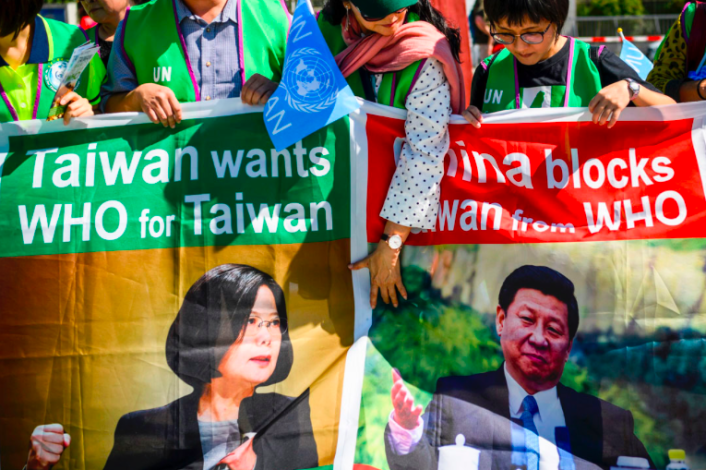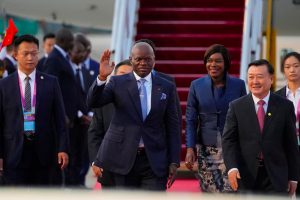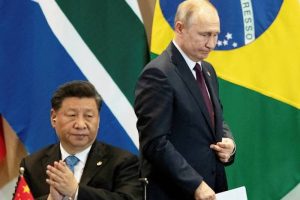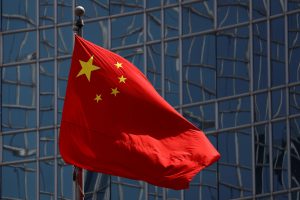(ATF) Taipei: Taiwan and its long-time political rival mainland China have quit talking since 2016. China scaled back Taiwan-bound tourists, and Taiwan is pushing investors to stay home or consider sites in Southeast Asia rather than venture into the mainland. Chinese military aircraft enter Taiwan-claimed airspace almost every day. But companies from the two sides are drilling together for oil in Chad, the outcome of cooperation that began before relations went on ice five years ago.
The Oryx oil field, though considered less productive than drilling sites in the Middle East or the US state of Texas, gives the two political foes a chance to make money together abroad. Taiwan – a major importer of its fuel today – stands to grow more energy self-reliant while China could prove itself to be a partner rather than a threat.
Taipei’s government-owned energy and petrochemicals giant CPC Corp. Taiwan picked its partner, Shanghai-based CEFC China Energy, because CEFC agreed to invest without operating the more than 10 wells spread over hundreds of square kilometres, CPC spokesperson Chang Ray-chung said.
Also on ATF
- Asian markets soar as epidemic rages on in the West
- Perfect winter supply storm sends Asian LNG prices to record highs
- China scraps limits on credit card interest rates
“It’s high risk and high investment, and it’s a bit on the margin, meaning output isn’t that high,” Chang said. He said CEFC “proactively” accepted the Taiwanese side’s conditions to share costs and risks while letting the Taiwan firm control operations.
CPC had operated Oryx since getting rights from the Chad government in 2006 and in 2017 it secured a 25-year licence to develop the site. Last year CPC finished installing production equipment and began oil production in February. For the first time, Taiwan had discovered oil in “commercial quantities”, the operator said on its websites.
“It will be another exemplary performance of CPC for achieving the twin goals of boosting the number of oil and gas sources under its control and upgrading the stability of Taiwan’s energy supplies,” the website says. The first oil shipment reached Taiwan on November 30.
Bankruptcy filing
Each partner owns a 35% stake following CEFC’s agreement in 2016 to buy the share for about $110 million. The deal was described then as CEFC’s first finished transaction in upstream oil exploration and production as it sought to broaden the types of services it could offer in the energy space.
The Chinese firm filed for bankruptcy in 2018, but Chang said that action hasn’t affected its stake in the Chad oil field. Chad’s government owns the remaining 30% stake.
The field produces just 2,000 barrels per day, down from the 70,000 plus expected from a field in the Middle East, said Danny Ho, chief executive officer of the DMI energy consulting firm in Taiwan. The African nation’s inland location raises shipping costs, he added. But the discovery of what CPC calls quality oil “represents they have the ability to explore on their own and manage it themselves”, Ho said.
The project is “symbolic” for Taiwan and mainland China, he said.
Relations between Taipei and Beijing have cooled since 2016, when Taiwan President Tsai Ing-wen rejected the other side’s dialogue condition that both fall under one flag. Taiwan has been self-ruled since the Chinese civil war of the 1940s, but Beijing claims the island as its own and has not renounced threats to take it by force – the spectre behind its daily military flybys.
Equal share
CPC should have avoided giving the Chinese company an equal share in the project in case China eventually uses it to get back at Taiwan, said Sean Su, an independent political consultant in Taipei. Chinese officials were suspected of pressuring travel agencies, for example, to direct tourists away from Taiwan in 2016 to show irritation with Taiwan’s president.
“Considering that China is an aggressive nation known to be as petty as to interfere in minor events such as local beauty pageants abroad, there is no guarantee that China won’t try to disrupt and make it a costly mistake for Taiwan’s CPC considering that China is often seen interfering in the affairs of private Chinese companies,” Su said. “It suggests Taiwan will need to continue to find other sources of energy as this one has become potentially vulnerable to China’s interference in the future.”
Language in the contract would not allow CEFC to gain operational control of the oil field, Chang said.
Taiwanese investors have partnered with mainland firms since the 1980s to manufacture a full slate of exports as operating costs on the other side amount to less than in Taiwan. The two sides share an official language and cultural hallmarks. Signature electronics makers such as Foxconn Technology and Pegatron rank among the bigger Taiwanese investors.
“There’s no way you can decouple from mainland China,” said Chao Chien-min, dean of social sciences at Chinese Culture University in Taipei. “We can resist Chinese products such as Huawei and offer our companies tax incentives (to invest at home), but nowhere in the world is there a country that’s decoupling economically from China.”
























